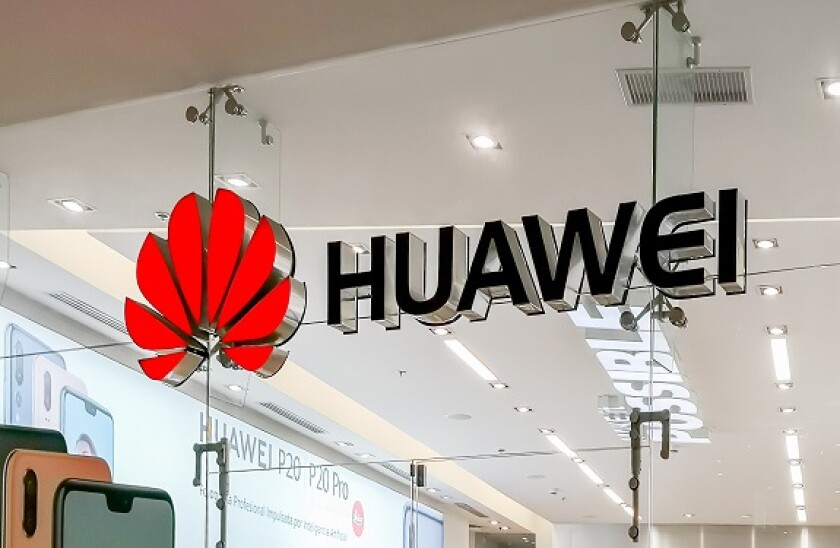In the spring of 2018, a private debt banker in Frankfurt tipped off GlobalCapital about what he called a "white whale" coming to the market — specifically, a Chinese company looking to raise a big ticket in the Schuldchein market. This would be have been the first Asian company to tap this rapidly growing market, and he hoped the deal would marshal other large Asian companies to enter the European private debt markets.
The deal, from Chinese technology behemoth Huawei, would be led by four arranging banks and target at least €200m but hopefully much, much more.
Asian borrowers have for years held a fascination with Schuldschein arrangers. They see their market as a sweet spot for large non-European companies looking for debt in euros without the hassle and regulatory scrutiny that come with issuing public bonds.
Moreover, as Asian investors — Chinese, Korean and Taiwanese banks — have flocked to the market in recent years, often making the majority of lending to international companies, bankers in Germany have thought that several key investors may already know the Asian credits well, and be able to drive the deals as anchor investors.
Whether the German banker on that day in 2018 was cackhandedly referring to the white whale in Herman Melville’s Moby Dick, a novel where an obsessive captain pursues a whale to his ship's peril, is unclear, but either way, the description was perhaps more accurate than intended.
“It has been harder to convince Asian borrowers to enter the market than Asian investors, that’s for sure,” said an arranger, who was instrumental in attracting Asian money to Schuldscheine. “One problem is most Asian companies are not that interested in €300m-€500m debt, but another reason is that because some of the larger buyers in the market are Asian they often already have exposure to these companies.”
To date, only one Asian company has successfully issued a fully syndicated Schuldschein. Reliance Industries, the conglomerate headquartered in Mumbai and founded by Dhirubhai Ambani, sold a €405m deal in May 2019.
“It’s a bit tricky with these Asian companies, but it is a work in progress," said the banker. "The problem is: what are they looking for? Most of the investors that would buy Chinese companies in the Schuldschein market would be Chinese investors. So the market’s a roundabout way of seeking investment from native investors.”
Unproven Glory
Huawei had in April 2018 indefinitely postponed a euro bond deal, to have been issued via a British Virgin Islands subsidiary called Proven Glory. The lead banks released final terms on a €500m-plus deal, with a book of over €1.7bn, but then pulled the deal, after the US authorities announced an investigation into whether the company had violated the country's sanctions against Iran.
The company looked at a potential deal in the Schuldschein market and was courted by a number of banks. An originator from one German bank went to China three times to visit the company’s headquarters.
BayernLB, Commerzbank, HSBC and UniCredit were mandated on the deal, and began soft-sounding the market for a prospective transaction. Huawei wanted underwriting of €50m from each of the arranging banks, according to a banker with knowledge of the situation, which made the prospect of launching a deal that much more of a risk for the lead banks.
“Huawei was considering the prospect seriously,” said one banker with knowledge of the situation, adding that Huawei was looking to raise its profile among European investors.
Western governments, in particular the US, had held suspicions of Huawei, and its participation in 5G, or fifth-generation, wireless networks. A congressional report in 2012 said that the US was at risk of Chinese spying via Huawei equipment.
"5G was just coming into focus [in 2018] and there were concerns that investors may be put off by this, and the specific focus on Huawei," said another banker with knowledge of the deal.
Huawei is prima facie not state run, and has consistently denied any improper links with the Chinese government. "Ultimately the company felt, with input from the banks, that selling Schuldscheine wasn't worth it and Huawei decided to postpone, at least for a while."
Many bankers think that that may have become an indefinite postponement, as the company has become further isolated from European mobile networks, after UK prime minister Boris Johnson, French president Emmanuel Macron and German chancellor Angela Merkel have indicated that their countries will seek to become less reliant on Huawei. The US announced sanctions on Huawei in May, preventing the firm from using chips made there.
"Even without the coronavirus focusing investors' minds on German-speaking regions, I think Huawei will be on the shelf for a long time, if not forever," said a banker in Germany. "Ultimately they don't need the liquidity and I think their funding strategy will have changed now."
Huawei did not respond for a request to comment.

